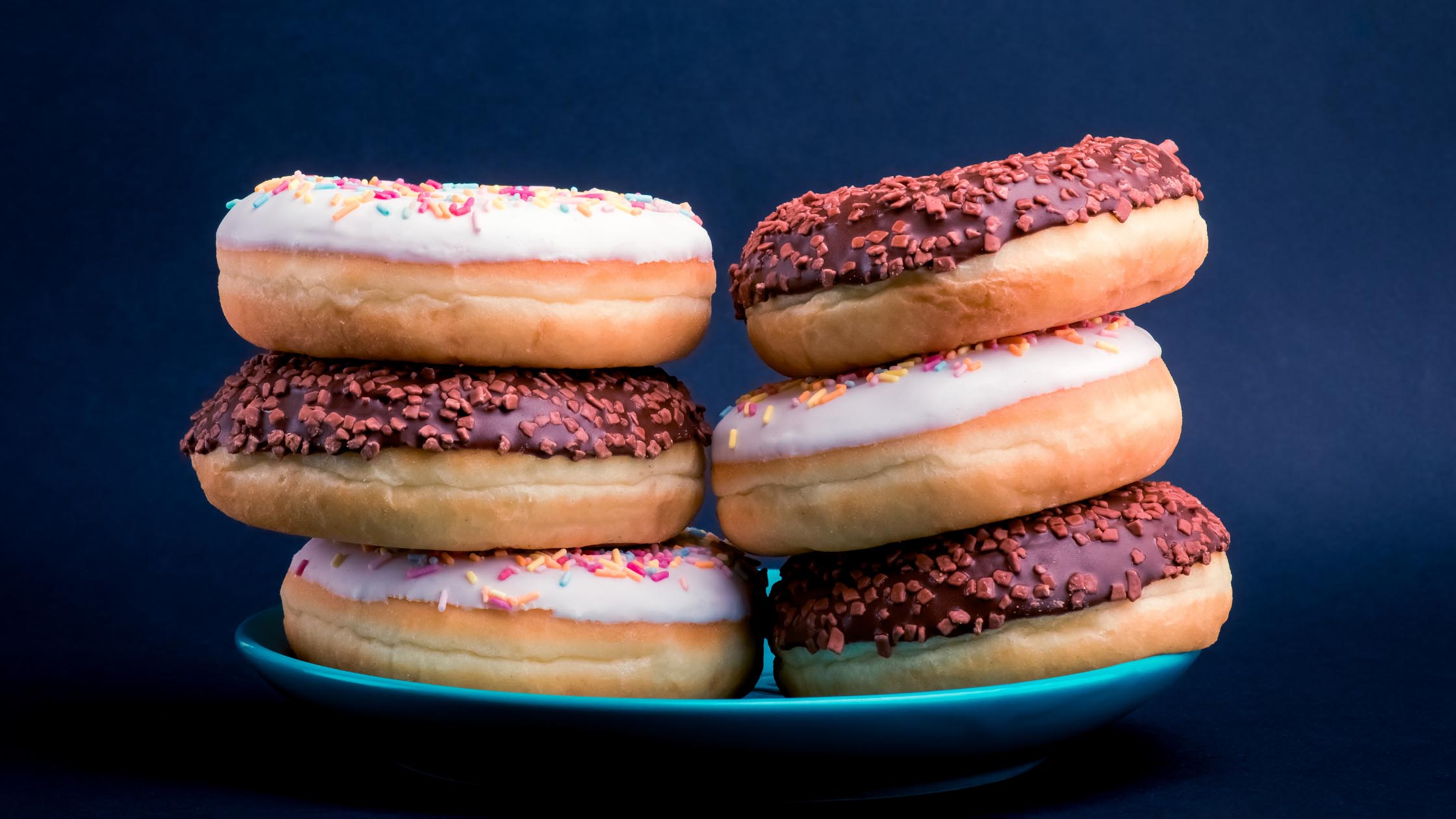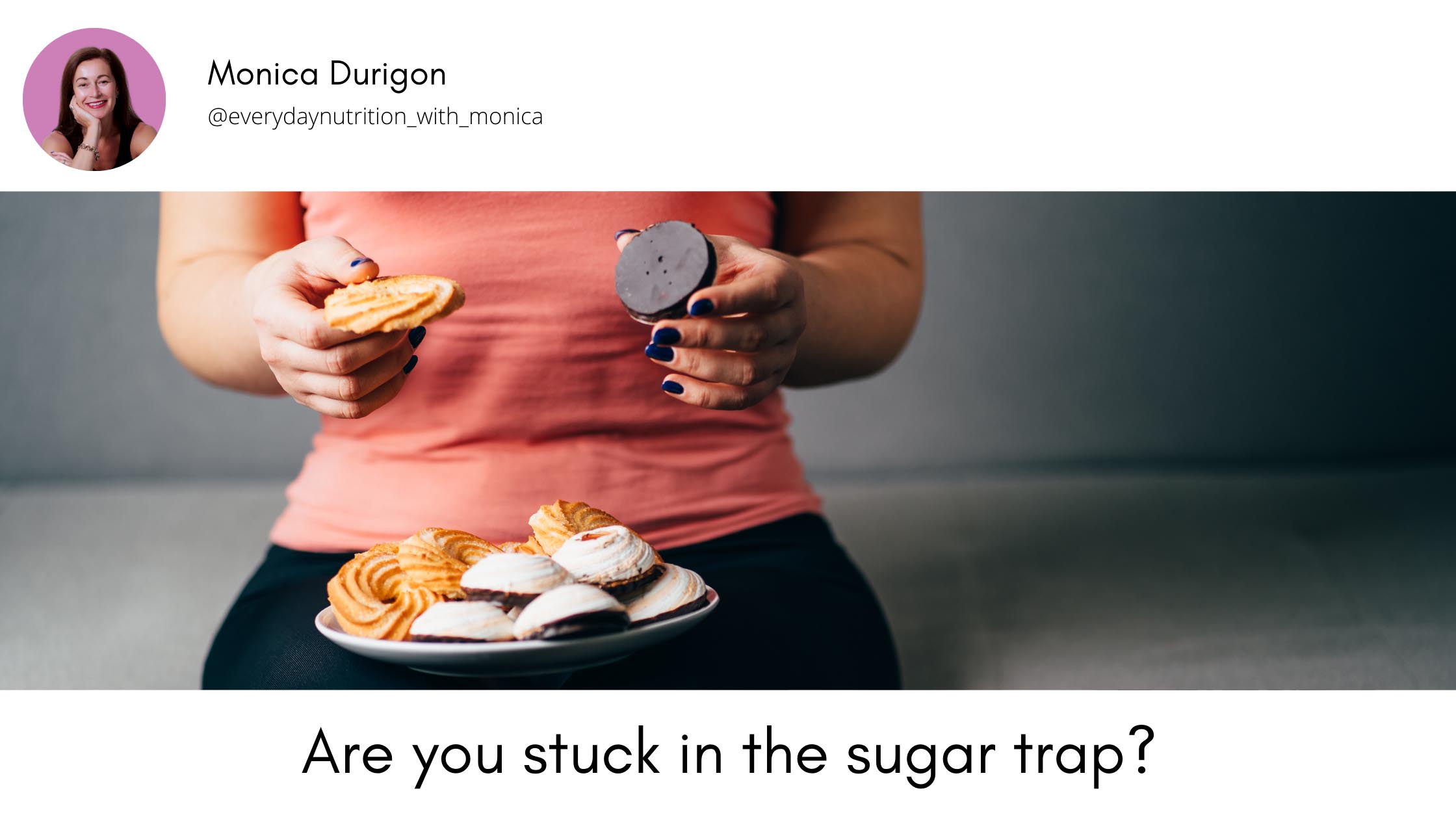We all love it! We all crave it, and we all know that too much sugar in our diet can lead to weight increase, insulin resistance, Diabetes type 2, fatigue, dental decay… and plays a role in many other chronic diseases, not to mention how much it plays havoc with our hormones and moods!
In this blog, I focus on the effects of sugar on our brains and explain how we can all fall into the sugar trap.
There is no nutritional need for refined sugar: none! We don’t need it in our diet. Our body can happily live without it, so why do we want it so much? Why is it so difficult to resist the biscuits, cupcakes, croissants, and chocolate bar … fill the blank with your favourite sugary treat!
It’s as if our brain is hardwired to want these foods… and in fact …it is!
The reasons why we love it so much
On an evolutionary basis, this makes so much sense. Our primitive ancestors were scavengers constantly looking for energy sources, and sugary foods are an excellent source of quick energy, so we have evolved to find sweet foods particularly pleasurable.
On the other hand, we are not drawn to foods with bitter and sour tastes because they meant that the food could have been unripe, poisonous or rotting — causing sickness.
To support our survival as a species, we have an innate brain system that makes us like sweet foods since they’re a great source of energy to fuel our bodies.

Sugar and dopamine
The brain area that gets activated when we eat sugar is the mesolimbic dopamine system. This is a part of the brain where dopamine gets released and signal that an event was positive. Dopamine is released each time we eat something sugary, giving us an immediate sense of gratification, it makes us feel “good”.
Dopamine release reinforces the behaviour that caused it, making that pathway in our brain more and more ingrained, which means that the brain will rapidly learn to look for and find more of the types of behaviours, foods, substances that promoted the release of dopamine.
The big problem with sugar is that contrary to the scarcity of sugary foods at the time of our ancestors, nowadays sugar is all around us, we don’t need to gather it …it does, in fact, gather us!

Why do you need more and more
But the real trap is that repeated activation of the reward pathway by eating lots of sugary foods causes the brain to adapt to frequent stimulation, leading to a sort of tolerance.
In the case of sweet foods, this means we need to eat more to get the same rewarding feeling — a classic feature of addiction.
So, whereas that first bite of the cake may have at one time filled you with euphoria, it now takes an entire piece of cake with extra ice cream on the side to get that same pleasurable feeling.
Sugar and your memory
The key centre for memory formation is another part of the brain impaired by high sugar diets. When given a high sugar diet, rats were less able to remember the position of objects they saw. Research shows that in those rats, there was a reduction of newborn neurons ( brain cells ) which are crucial for storing memories and also an increase in inflammation.
So too much sugar in your diet can worsen your memory, lead to addiction, and desensitise your taste buds!
Sugar and your taste buds
Research shows that a high-sugar diet deadens your taste buds to sugar, so you need more of it to taste the sweetness.
That means that naturally sweet foods like fruit and some vegetables do not taste as sweet to someone who is hooked on sugar as they do to someone who has broken their sugar addiction.
You might be someone who experiences the strongest of cravings but let me tell you that breaking free from sugar is possible, and the most successful way is to start adding before taking away from your diet.
Adding foods that help balance your blood sugar levels will help with your biochemistry and reduce the cravings and the dependency on sugar. Creating supporting lifestyle habits will help you establish different and healthier rewarding systems and improve your resilience to stress. We all know that when stress is high, our need for comfort and instant gratification increases and sugar can be an easy, quick fix.

How to ditch the addiction
In my next blog, I will give you three super simple and actionable steps that you can take straight away to escape from the sugar trap.
If you want to break free from cravings and stop sugar controlling you, I invite you to check the Guide Session in the FB community, “Weightloss, great energy and more focus”. I have posted many videos with strategies and tips to regain control of your dietary and lifestyle choices.
Please leave me a “YES” in the comment if you think you are stuck in the sugar trap and if the above relates to you.
I would love to hear how I can best support you.
With love, energy and care,






0 Comments